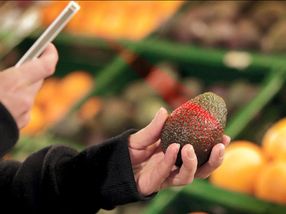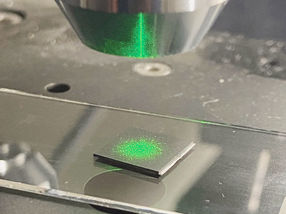Merck: Slight increase in Group sales
Exchange rate effects lower sales and earnings in the first half of 2018
Merck reported solid organic sales growth for the second quarter of 2018 and a slight increase in sales despite considerably negative foreign exchange effects. EBITDA pre declined in comparison with the year-earlier quarter and was also impacted by foreign exchange effects. Merck confirmed its full-year forecast for 2018 with respect to organic business performance yet now expects a slight weakening of negative foreign exchange effects.
“In the second quarter, the Merck Group generated solid organic sales growth, which was mainly attributable to our Life Science and Healthcare business sectors. This also reflects the positive contributions of our new medicines Bavencio and Mavenclad. Performance Materials also generated slight organic sales growth owing to the strong development of Semiconductor Solutions,” said Stefan Oschmann, Chairman of the Executive Board and CEO of Merck. “Overall, we confirm our forecast for organic performance in 2018, a year of transition with many challenges, as already stated at the beginning of the year.”
Group sales grew in the second quarter by 0.5% to € 3.7 billion, thus maintaining the year-earlier level (Q2 2017: € 3.7 billion). Organically, Group sales grew by 5.2% thanks to the Life Science and Healthcare business sectors. However, this was offset by negative foreign exchange effects amounting to –4.7%, which stemmed mainly from the weaker U.S. dollar against the euro.
EBITDA pre, the key financial indicator used to steer operating business, declined by –13.7% to € 920 million (Q2 2017: € 1,066 million). The impact of negative foreign exchange effects on Group EBITDA pre was –11.0%. By contrast, the organic decline of –2.7% in EBITDA pre was due, among other things, to the absence of positive one-time effects from the year-earlier quarter as well as higher research and development costs. Group EBIT dropped by –35.4% to € 392 million (Q2 2017: € 608 million). This reflected the same factors responsible for the decline in EBITDA pre. Additionally, the reversal of an impairment loss for a Healthcare production line in Vevey (Switzerland) in the year-earlier quarter also played a role.
Net income of the Merck Group thus fell in the second quarter by –42.0% to € 247 million (Q2 2017: € 426 million). Earnings per share pre declined by
–18.5% to € 1.23 (Q2 2017: € 1.51).
The net financial debt of the Merck Group increased to € 10.7 billion as of June 30, 2018 (Dec. 31, 2017: € 10.1 billion). Among other things, this development was attributable to the dividend payments made in the course of the quarter. Merck had 54,009 employees worldwide on June 30, 2018.
Exchange rate effects lower sales and earnings in the first half of 2018
In the first six months of 2018, net sales of the Merck Group declined by –2.1% to € 7.2 billion (January-June 2017: € 7.4 billion). This decrease was attributable to negative foreign exchange effects amounting to –6.3%, which exceeded organic sales growth of 4.2%. In the first half of 2018, EBITDA pre declined by –16.6% to € 1.9 billion (January-June 2017: € 2.3 billion), with –10.4% stemming from negative foreign exchange effects. Earnings per share pre fell by -21.0% to € 2.56 (January-June 2017: € 3.24).
Healthcare delivers organic sales growth, also thanks to newly approved products
In the second quarter, Healthcare generated organic sales growth of 4.7%, which was, however, canceled out by a negative foreign exchange impact of –4.9%. Net sales of Healthcare decreased by –0.2% to € 1.6 billion and were thus slightly below the level of the year-earlier quarter (Q2 2017: € 1.6 billion).
As in the first quarter, the organic growth of Healthcare was driven by the performance of the Fertility franchise. In addition, net sales of the two new medicines Mavenclad and Bavencio again contributed to organic growth. Net sales of the immuno-oncology medicine Bavencio rose to € 17 million in the second quarter of 2018 (Q2 2017: € 4 million). With Mavenclad for the oral short-course treatment of highly active relapsing multiple sclerosis (MS), Merck generated sales of € 20 million in the second quarter of 2018 subsequent to European approval in August 2017. On July 30, 2018 Merck announced that a resubmission of the New Drug Application (NDA) for cladribine tablets as a potential treatment for patients with relapsing forms of MS had been accepted for filing by the U.S. Food and Drug Administration (FDA). Cladribine tablets have already been approved in 38 countries under the brand name Mavenclad.
Sales of the drug Rebif, which is used to treat relapsing forms of MS, declined organically by –4.2% in the second quarter of 2018. Including negative foreign exchange effects of –5.7%, sales amounted to € 383 million (Q2 2017: € 425 million). In the second quarter, sales of the oncology drug Erbitux were stable organically, yet after foreign exchange effects of –4.9% they amounted to € 203 million (Q2 2017: € 213 million). Organically, sales of Gonal-f, the leading recombinant hormone for the treatment of infertility, were in line with the year-earlier quarter, amounting to € 184 million in the second quarter of 2018 (Q2 2017: € 193 million).
EBITDA pre of Healthcare declined by –16.0% to € 379 million in the second quarter of 2018 (Q2 2017: € 450 million), with negative foreign exchange effects accounting for –13.3%. Additionally, favorable one-time effects in the year-earlier quarter had created a higher comparative basis.
Life Science shows strong organic growth thanks to all three business units
In the second quarter of 2018, the Life Science business sector generated strong organic sales growth of 7.7%, which was driven by all three business units. Including negative foreign exchange effects of –4.6%, net sales of Life Science grew by 3.2% to € 1.5 billion (Q2 2017: € 1.5 billion).
The Process Solutions business unit, which markets products and services for the entire pharmaceutical production value chain, generated significant organic sales growth of 12.5%, which was the highest within the business sector. Amid an unfavorable foreign exchange impact of –4.6%, net sales totaled € 612 million in the second quarter of 2018 (Q2 2017: € 567 million).
The Research Solutions business unit, which provides products and services to support pharmaceutical, biotechnological and academic research laboratories, generated solid organic sales growth of 4.1%. Including currency headwinds of
–4.5%, net sales amounted to € 517 million (Q2 2017: € 518 million).
With its broad range of products for researchers as well as scientific and industrial laboratories, Applied Solutions recorded strong organic sales growth of 5.7% in the second quarter of 2018. Including negative foreign exchange effects of –4.7%, net sales amounted to € 414 million (Q2 2017: € 410 million).
EBITDA pre of Life Science improved organically by 2.9% in the second quarter of 2018 compared with the year-earlier period. However, including a negative foreign exchange impact of –3.4%, this key figure declined by -0.6% to € 452 million in the second quarter of 2018 (Q2 2017: € 454 million). The EBITDA pre margin of Life Science amounted to 29.3% in the second quarter of 2018.
Performance Materials: Strong organic growth in semiconductor and OLED materials
In the second quarter of 2018, net sales of the Performance Materials business sector declined by –4.2% to € 587 million (Q2 2017: € 612 million). This was attributable to negative foreign exchange effects of –4.6%, which could not be offset by slight organic growth of 0.4%.
The Display Solutions business unit saw an organic decrease in sales yet maintained its market leadership position. The lower sales of the business unit were attributable in particular to headwinds in the Liquid Crystals business owing to continued declining prices and now stagnating volume growth. An exception here were the energy-saving UB-FFS technology as well as OLED materials, which generated double-digit organic growth. The Semiconductor Solutions business unit, which comprises the business with materials used in integrated circuit production, delivered very strong organic growth in the second quarter.
EBITDA pre of Performance Materials declined by –18.2% to € 196 million (Q2 2017: € 239 million). This included negative foreign exchange effects of –8.8%. Consequently, the business sector’s EBITDA pre margin decreased to 33.4%.
On July 3, 2018, Performance Materials presented its new strategy to the capital market and explained how the business sector is to achieve 2% to 3% average annual sales growth and an expected EBITDA pre margin of approximately 30% after 2019. Merck assumes that the future growth of its Performance Materials business will benefit from the growing electronics market, particularly with respect to semiconductors.
Merck confirms forecast for organic sales and earnings performance
Merck continues to expect for the full year 2018 a moderate organic net sales increase of 3% to 5% over the previous year. In comparison with the first quarter of 2018, the adverse impact of the increase in the value of the euro against the U.S. dollar and various emerging market currencies weakened in the second quarter, as expected. Merck therefore assumes that for the full year, exchange rate effects will have a moderately negative impact on net sales in comparison with the previous year. However, at –3% to –5%, the impact will be slightly lower than previously forecast (–4% to –6%). Overall, excluding the Consumer Health business, which is now reported as a discontinued operation, Merck therefore forecasts Group net sales in a range of between € 14.1 billion and € 14.6 billion in 2018 (when the figures for the first quarter were presented, Merck had forecast 2018 sales of € 14.0 billion to € 14.5 billion from continuing operations). Owing to solid business performance in the second quarter of 2018, Merck confirms its previous forecast of a slight organic decline of –1% to –3% in EBITDA pre compared with the previous year. The company continues to expect that Group EBITDA pre will be in a corridor of between € 3.75 billion and € 4.0 billion in 2018.





















































